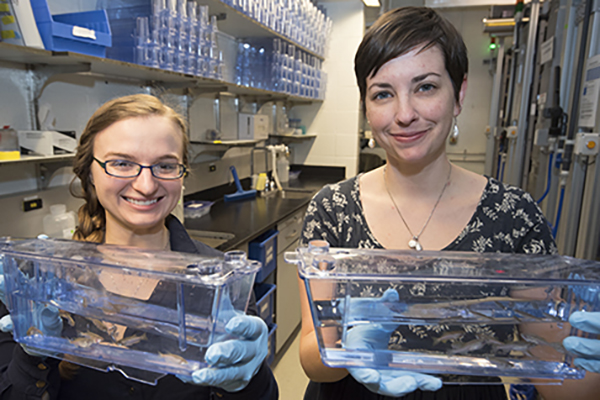New target identified in fight against Alzheimer’s, multiple sclerosis
Highlighting a potential target in the treatment of
multiple sclerosis (MS) and Alzheimer’s disease, new research suggests
that triggering a protein found on the surface of brain cells may help
slow the progression of these and other neurological diseases.
Scientists find gene vital to central nervous system development
Using Washington University’s state-of-the-art zebrafish facility, scientists have identified a gene that helps regulate how well nerves of the central nervous system are insulated. The finding may have implications for human diseases such as multiple sclerosis, in which this insulation is lost.
Mouse study offers new clues to cognitive decline
New research suggests that certain types of brain cells may be “picky eaters,” seeming to prefer one specific energy source
over others. The finding has implications for understanding the cognitive decline seen in aging and degenerative diseases such as Alzheimer’s and multiple sclerosis.
Scientists have new help finding brain’s nooks and crannies
Like explorers mapping a new planet, scientists probing the brain need every type of landmark they can get. Each mountain, river or forest helps scientists find their way through the intricacies of the human brain. Researchers at Washington University School of Medicine in St. Louis have developed a new technique that provides rapid access to brain landmarks formerly only available at autopsy.
Scientists find gene vital to nerve cell development
The body’s ability to perform simple tasks like flex muscles or feel heat, cold and pain depends, in large part, on myelin, an insulating layer of fats and proteins that speeds the propagation of nerve cell signals. Now, scientists have identified a gene in mice that controls whether certain cells in the peripheral nervous system can make myelin. Called Gpr126, the gene encodes a cellular receptor that could play a role in diseases affecting peripheral nerves.

